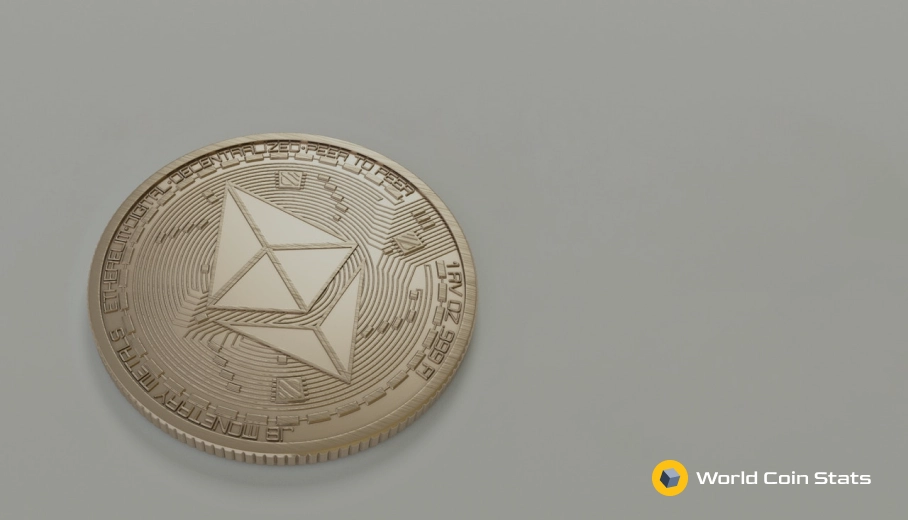The Demise of Centralised Exchanges
Decentralized finance (DeFi) has grown in popularity in 2020 and continues to grow in 2021. DeFi relies on smart contracts and, as the name implies, no central authority controls DeFi protocols.
The biggest draw of DeFi, however, has been the astronomical returns that users receive for locking their cryptocurrency in for returns on DeFi protocols. Basically, this gives users the ability to earn money from their cryptocurrency holdings outside of the usual “buy low; sell high” strategy that most people use for gains on cryptocurrency.
Anyway, one of the more popular uses of DeFi has been decentralized exchanges. These exchanges do not have a centralized authority controlling any aspect of them other than the initial creation of the smart contract that manages the exchange. Users can freely buy and sell tokens without any outside interference.
This article will explain why the days of centralized exchanges are numbered. And probably are on the way out a lot sooner than many would expect. However, we will also cover some of the obstacles that decentralized exchanges will face on the path to widespread adoption.
Contents
3 Reasons Centralized Exchanges Are Worse Than Decentralized Exchanges
Here are the main three reasons that centralized exchanges are worse than decentralized exchanges. There are likely more reasons than the following reasons, but these reasons are a good starting point to understand the problem with centralized exchanges.
Know Your Customer (KYC)
The first problem with centralized exchanges, at least centralized exchanges that accept fiat currency, is that they are legally required to collect your personal information due to banking regulations.
This usually entails sending the exchange a picture of your passport or government ID card.
What is the problem with this?
It eliminates the anonymity of cryptocurrency. In fact, Bitcoin purchased through an exchange with KYC regulations is extremely easy to track if proper measures to obscure the origin of the Bitcoin are not taken.
This is good at preventing crime, but the “crypto” portion of cryptocurrency does not really apply when your identity is not private. This makes cryptocurrency worse than just using straight cash if you want to keep yourself anonymous.
Not to mention that the centralized exchange now has your personal information. Remember the Equifax hack?
That could happen to a cryptocurrency exchange, too. They do have a lot of customer information, which makes them a target for hackers looking to steal identities.
The entire KYC thing makes centralized exchanges a big risk that many do not want to deal with in cryptocurrency. In our opinion, a centralized exchange is almost as bad as keeping your fiat currency in a bank.
Exchange Hacks
Another problem with centralized exchanges are the exchanges getting hacked. This is not a problem if you keep your cryptocurrency in your own private wallet.
As the saying goes, not your keys; not your crypto.
Of course, many people still keep cryptocurrency on a centralized exchange for convenience or because they don’t have a safe wallet, which is a huge risk.
The benefit with a decentralized exchange is that you don’t keep your money on the exchange per se. Sure, you can stake your cryptocurrency on the exchange, but the actual process of buying cryptocurrency requires you to send it to your private wallet.
This makes a decentralized exchange much safer than a centralized exchange.
Exchange Rules
Finally, centralized cryptocurrency exchanges have rules on where you can send your cryptocurrency. For instance, Coinbase will ban your account if you send cryptocurrency to known gambling website wallets.
We will not cover the ethical reasons for banning certain wallets, but we find it goes against the entire purpose of cryptocurrency to ban accounts for sending their cryptocurrency to certain wallets.
A decentralized exchange does not have this issue. You can send the cryptocurrency to any wallet you want and the exchange won’t ban your account. In fact, there isn’t even a real account to ban on most decentralized exchanges because everything relies on a smart contract and connected wallet.
The Problems With Decentralized Exchanges
Now, we have made a good case against centralized exchanges, but that does not mean decentralized exchanges are perfect.
Decentralized exchanges still have problems. These problems are easy enough to overcome for more advanced users. However, newer users that are not really interested in cryptocurrency may struggle to overcome some of these problems.
This section will cover some of those problems and some potential solutions to the problems.
No Fiat Currency
The biggest problem with decentralized exchanges is that they do not accept fiat currency. There are stablecoin alternatives to fiat currency, though.
The problem without being able to accept fiat currency is that decentralized exchange users must have some familiarity with cryptocurrency to even use one. They also usually purchase their initial cryptocurrency on a centralized exchange before then using it on a decentralized exchange to purchase altcoins.
Anyway, decentralized exchanges likely will not see mass adoption until they can figure out a way to allow users to purchase cryptocurrency with fiat currency. This seems improbable, so there likely will not be mass adoption of decentralized exchanges in the near-future.
That said, decentralized exchanges do not need mass adoption to bring down centralized exchanges. All they need is a sizable market share to chip away at centralized exchanges.
Complicated to Use
This point ties together the other two points – decentralized exchanges are difficult to use. They require a user to connect an Ethereum wallet to the exchange and then send money to a smart contract in exchange for the cryptocurrency in the smart contract.
We admit it is not the most complicated process, but it’s complicated enough that it scares off many users from using these exchanges to purchase cryptocurrency.
This problem will likely be resolved as more and more people begin using these exchanges. They will show their friends how to use them, create video tutorials, and other stuff to build up the community that surrounds decentralized exchanges.
Scamcoins
Finally, decentralized cryptocurrency exchanges have a scamcoin problem. This comes with the territory of being decentralized.
Basically, anyone can sell any cryptocurrency on a decentralized exchange. All they have to do is fund a smart contract with the proper amount of Ethereum and cryptocurrency they wish to sell.
This has led to a phenomena of people creating junk cryptocurrency coins, hyping them up on Discord, and then selling them on Uniswap for Ethereum. The project founders will then disappear with the Ethereum once the scam has run its course.
This problem likely won’t be resolved – if an exchange removes cryptocurrency, then it is no longer a decentralized exchange.
Fortunately, awareness of cryptocurrency scams has made this type of scam much less common. It will still happen, but the frequency will decrease as people become more aware of these scams.
Final Thoughts
All things considered, centralized exchanges still offer one thing that decentralized exchanges will likely never be able to offer:
A way to purchase cryptocurrency with fiat currency.
Other than that one benefit, centralized exchanges have no major advantages over decentralized exchanges. A decentralized exchange fits the purpose of cryptocurrency much better than a centralized exchange.
The question still remains, will decentralized exchanges ever overcome their centralied counterparts?
In our opinion, decentralized exchanges will make up an increasingly larger percentage of the cryptocurrency exchange market. But centralized exchanges will likely always exist in some capacity to facilitate fiat currency to cryptocurrency transactions.




